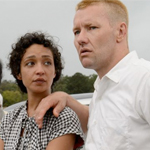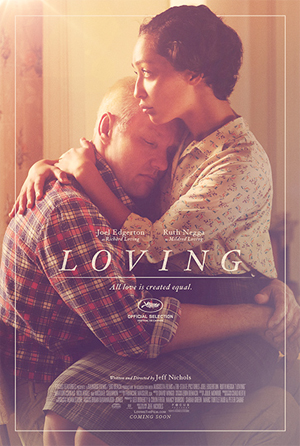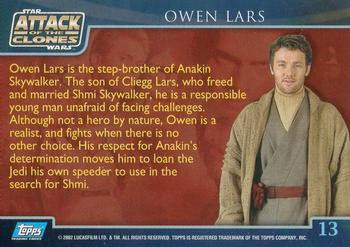 LOVING is a pretty simple true story about something that should be pretty simple: two people are in love and having a baby and decide to get married and build a life together. Should be up to them to decide if that’s a good idea, you would think, but the trouble is that Richard Loving (Joel Edgerton, WARRIOR) is white and Mildred Jeter (Ruth Negga, THE SAMARITAN, WARCRAFT) is black, and in Virginia in 1958 it was illegal for them to get married.
LOVING is a pretty simple true story about something that should be pretty simple: two people are in love and having a baby and decide to get married and build a life together. Should be up to them to decide if that’s a good idea, you would think, but the trouble is that Richard Loving (Joel Edgerton, WARRIOR) is white and Mildred Jeter (Ruth Negga, THE SAMARITAN, WARCRAFT) is black, and in Virginia in 1958 it was illegal for them to get married.
Like same sex couples before we got marriage equality a few years back, they had to go somewhere else to get married (Washington DC), but back at home the cops kick in their door one night and arrest them. Richard gets bailed out but they won’t let him bail out Mildred. Wait to see the judge on Monday, they say, as if that’s a reasonable thing to ask a man whose pregnant wife is currently locked up in a cold cell for ludicrous reasons. They threaten to arrest him if he keeps trying to get her released.
The judge would make the Lovings do a year for this – for being married! – but they plea bargain. Instead they have to leave the state (their home, their property, their family, their jobs) and not come back together for 25 years. So, against their will, they go to raise their kid (soon kids, plural) in the city.
(Virginia: 13 electoral votes. DC: 3 votes starting in 1961.)
 But they know it’s wrong, and Mildred is a country girl at heart, and they miss their families, so they keep coming back. And they’re sneaking around and hiding out and have a network of people looking out for them and giving them messages, like they’re fugitives. Always living in fear of a car coming down their driveway.
But they know it’s wrong, and Mildred is a country girl at heart, and they miss their families, so they keep coming back. And they’re sneaking around and hiding out and have a network of people looking out for them and giving them messages, like they’re fugitives. Always living in fear of a car coming down their driveway.
But while they were in the city, inspired by seeing the nearby March On Washington on TV, Mildred’s friend gave her a city idea: try to use the institutes of government to affect positive change. Write a letter to Bobby Kennedy. She does, and to her surprise, something happens. A lawyer named Bernie Cohen (Nick Kroll, KNIGHT OF CUPS) calls her out of the blue because Kennedy told the ACLU about the case and they assigned him to look into it.
This is an interesting clash of personalities. Mildred is sweetly naive, wide-eyed and agreeable, interested in taking on this fight once she understands that the ACLU will pay for it. Richard is shy and cynical and wants nothing to do with it, seems to think it’s a scam or something. Cohen – portrayed very well and not distractingly by a popular wild-eyed comedian I don’t usually like – is kind of in over his head, but correct in his instinct that this could go all the way to the Supreme Court and change the country for the better. And luck teams him with Constitutional expert Phil Hirschkop (Jon Bass). So it’s these two highly educated, idealistic Jewish liberals having to cool their jets because any exciting progress in their case means an ordeal for this innocent family at the middle of it.
 The writer/director is Jeff Nichols (SHOTGUN STORIES, TAKE SHELTER, MUD, MIDNIGHT SPECIAL), and it’s another one of his quiet southern dramas with great acting performances, in particular Negga and the completely transformed Edgerton. I’m guessing ol’ Uncle Owen will get an Oscar nomination, but then I’ve been rooting for his success since I noticed him in ANIMAL KINGDOM. I usually admire his upright, masculine presence, but he’s really been stretching himself as director and lead creep of THE GIFT and now this squinty, inward, Popeye-esque character.
The writer/director is Jeff Nichols (SHOTGUN STORIES, TAKE SHELTER, MUD, MIDNIGHT SPECIAL), and it’s another one of his quiet southern dramas with great acting performances, in particular Negga and the completely transformed Edgerton. I’m guessing ol’ Uncle Owen will get an Oscar nomination, but then I’ve been rooting for his success since I noticed him in ANIMAL KINGDOM. I usually admire his upright, masculine presence, but he’s really been stretching himself as director and lead creep of THE GIFT and now this squinty, inward, Popeye-esque character.
Most people going into this will know that Loving vs. Virginia is the famous Supreme Court case that lifted prohibitions against interracial marriage. And there’s a certain unavoidable formula to movies about historical Supreme Court breakthroughs like that. But this does a good job of emphasizing the personal side of it. The Lovings have to be told basically “We think we can get you justice, all you need to do is go back and get arrested so we can start a series of court cases that you have to lose so that we can keep appealing until we get to the Supreme Court.” That’s not an easy thing to agree to.
These are not complicated people. Richard spends his days laying bricks, and he wants to build a house for his family. He has strong feelings about the situation that he usually can’t articulate. He’s not really built for this legal shit, and he shouldn’t have to be. He refuses to even watch the trial because he’s told that the state will make the vile argument that mixed race children are by definition bastards, and that it’s unfair to conceive them. Yeah – fuck you, Virginia.
There’s an early scene that really captures the state of things really well, it’s just a bunch of young people cheering on a drag race. One side is all white people, the other side is mostly black, but with a few white friends including Richard, who helped fix up the engine for this. Their side happens to win, and it should be all in fun, but you get the feeling the all-white side takes extra insult at losing to this group. And one of them in particular stares at Richard kissing then-girlfriend Mildred, and just glowers at him. Why would that offend him? Why would he think it was any of his business?
That’s what we’re dealing with here. At that time there is a mostly black area in rural Virginia, and some people like Richard and Mildred don’t see anything wrong with intermingling. And for that they get chased away. Most people at that time have this value burnt into them, this idea that it’s wrong. When Sheriff Brooks (Marton Csokas, AEON FLUX, xXx) talks to him about it he acts like he’s talking to a kid who got caught stealing and knows it’s wrong. “You know better” he keeps saying. Later his mom (Sharon Blackwood, MAGIC MIKE XXL) says the same thing. She supports him but deep down she feels like he is morally wrong for marrying the woman he loves. That’s how ingrained it is in them.
And the idea comes up that somebody must’ve called the police on them in the first place. They don’t know who. You consider different suspects and you get infuriated.
And of course this is a real thing that happened, so there’s a lesson there, that maybe some of these judgments we have deep inside us are due for questioning. When we really consider where they come from they might not turn out to be so reasonable. I had a moment like that in my life when I sort of out of the blue realized that the prejudice toward gay people that I had grown up with didn’t make any sense. And that seems like a million years ago, and I’m so glad that gay people are part of my life and are treated quite a bit better by society than they were back then. But there is further to go and I can’t guarantee that I don’t have more evolution to do myself. Maybe that’s not my last eureka moment.
It’s hard to wrap your head around how relatively not-that-long-ago this was, and that a law that to us seems so clearly shameful, unjust and straight up based in nonsense and stupidity, was accepted as the status quo. Even people who knew it was wrong didn’t think it could be changed. And you have to remember that when Reagan and George W. Bush and now especially Trump were talking about the good old days and the great America that once was, they may not always think that they’re talking specifically about this racism, but they are talking about the world they lived in where they didn’t give a shit that this is what was happening to their fellow Americans and humans. They remember how great it was because the oppression that was going on, whether or not they were personally enforcing it, was not something they paid attention to or worried about. And I think the privilege of not having to think about that stuff is part of the paradise they are nostalgic for.
To some people raised conservative, “progressive” is a bad word, but that’s all it means to me: always improving. We keep fighting for progress, making things better for us at the end of our lives and for the generations that come after us to build on. We eventually got rid of slavery. And then segregation. And this. To think that right now we got everything figured out just right and we have to be happy with this exact amount of equality and civil rights, to stay fixed at this place in time (or go backwards!), is insane. There are still injustices in our country, and sometimes the system (if we decide to keep it) really can be a remedy. I love this movie’s heroic view of something as square, as taken-for-granted and as demonized-by-the-right as the American Civil Liberties Union. Here they are a bunch of nerds excited to use their knowledge for justice. And they do it! It’s beautiful.
One thing though, if the case was called Jeter vs. Virginia I don’t know if this movie would be made, it’s just so perfect that it can be called LOVING. So we lucked out there.


























December 6th, 2016 at 10:34 am
What is it with comedians, who give surprisingly good dramatic performances (and why are we even still surprised by that)?